7 ways plants and food can help your mental health
Organised by the Mental Health Foundation, Mental Health Awareness Week is an annual UK-wide event focused on discussing and promoting good mental health.
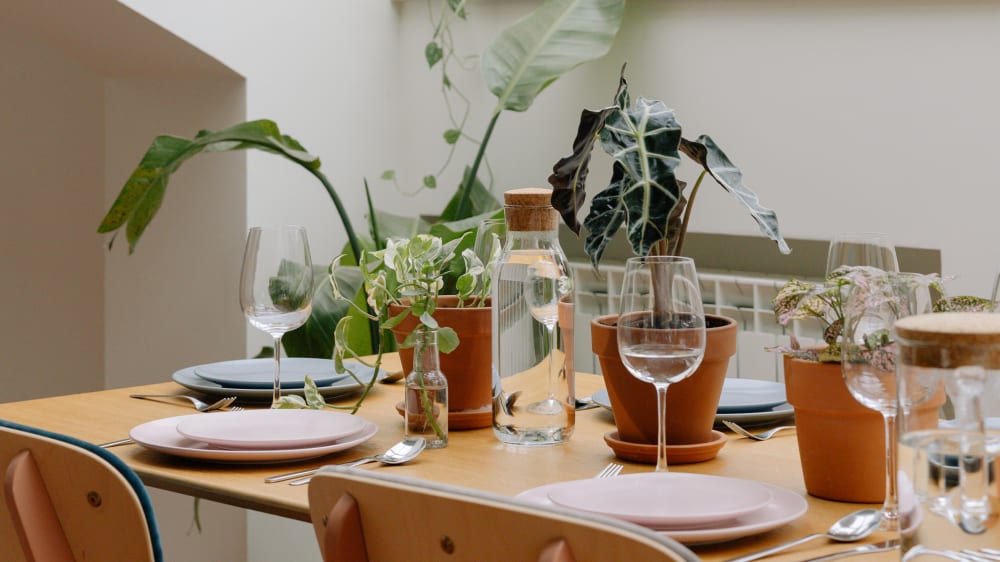
To mark the month, we’ve teamed up with our friends at Mindful Chef to show you how healthy eating and caring for plants go hand in hand for looking after your mental health.
Studies have shown that having a number of plants in your environment will result in a 60% improvement to your mental wellbeing, which alongside healthy eating habits, can help our brains process emotions, slow down, and feel better.
Here’s some ways eating a healthy diet and looking after plants can improve and maintain good mental health:
1. Eat well, live well
It’s no secret that maintaining a balanced diet, eating plenty of fruits, vegetables and slow-release carbs is a great starting point for giving your mental health some TLC. It sounds simple, but eating these foods is proven to boost your mood and improve cognitive function.
Plants demonstrate this point marvellously. If they don’t get enough sunlight or water, or they’re not planted in the right soil or given the right nutrients, they’re going to look pretty sad. Looking after plants can be a great reminder to consider what you need to thrive too.
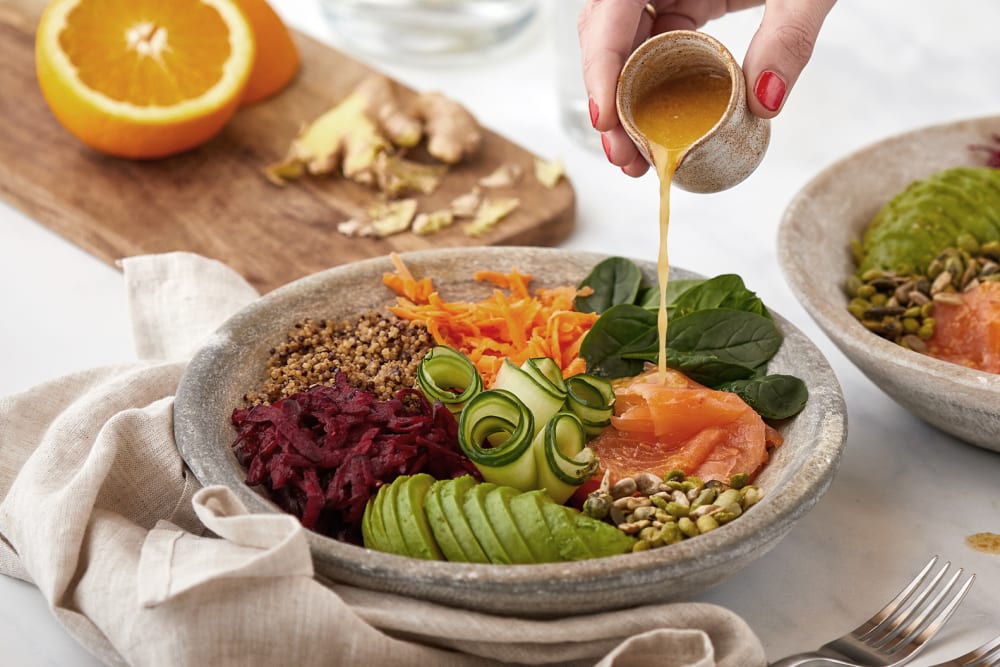
2. Keep your blood sugar steady
Eating a balanced diet is one thing, but it’s also important to keep a regular eating pattern throughout the day. You may have heard of eating ‘little and often’ - it’s said that this way of eating saves your blood sugar levels from dropping too low.
Dips in your levels caused by hunger and dehydration can cause tiredness, mood swings, and irritability, so you want to keep your body running on water, slow-release carbs and plenty of healthy snacks in order to stave off these feelings. Why not try growing your own raspberries and blueberries to nibble on throughout the day?

3. Hydration, hydration, hydration
Humans and plants both need water to survive, that’s what connects most living things on planet Earth. Drinking plenty of water can help clear brain fog, fatigue, and improve your focus. Our brains are comprised of 85% water, so it’s especially important to drink plenty.
Trying some different ways to get your water fix can encourage you to drink more. Try adding some homegrown lemon slices to hot water as an alternative to your usual coffee or tea. They’re a fantastic source of vitamin C and full of antioxidants.
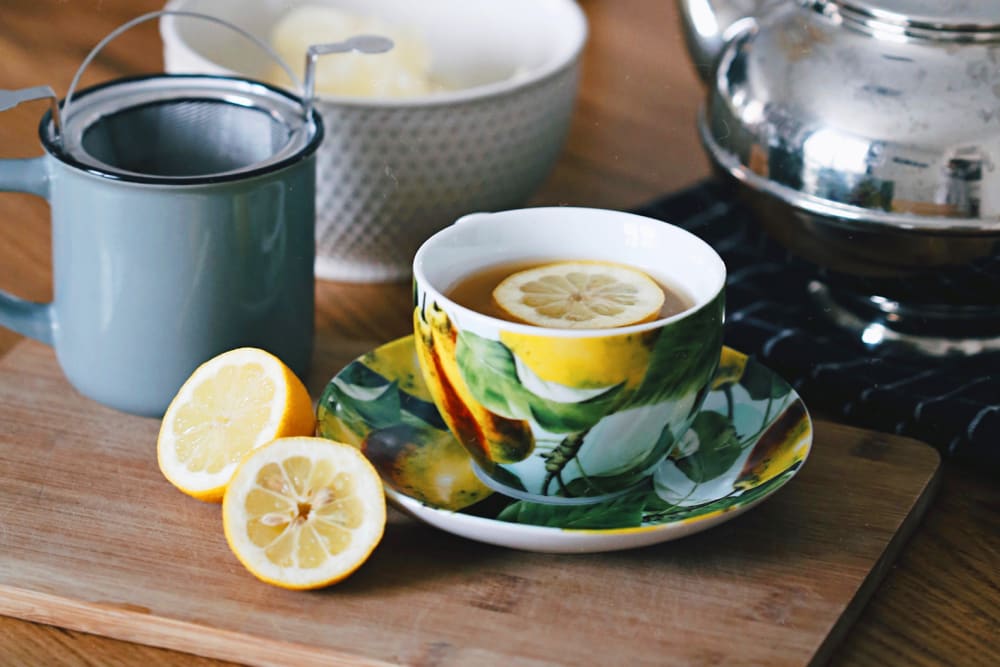
4. Find the power in routine
It takes patience and persistence for plants to blossom and grow to their full potential, but the process can be very rewarding. Taking 10 minutes to yourself once a week to water and mist your plants, or 30 minutes to gently clean their leaves, will help to gently calm your mind.
When it comes to food, it’s not just the types of food and drink we consume that benefits our mental health. Healthy habits such as planning meals in advance can help keep you on track when you’re under time pressure or lacking motivation.

5. Feed your brain (and your gut)
Hundreds of species of ‘healthy bacteria’ live in your stomach which help regulate the way our brain processes moods and feelings. They need a varied diet in order to work their magic. Make sure you’re eating a diverse range of gut-friendly food such as legumes, whole grains, fermented foods like yogurt and kimchi, and even homegrown citrus fruits.
When it comes to plants, green is a colour our brain finds naturally soothing. Try introducing a few staple plants into your space to create an environment of relaxation and calm your brain will thank you for.

6. Bring the great outdoors, indoors
It’s not just eating plenty of leafy greens and plants that benefits your mental health. Keeping plants at home, edible or not, helps connect us to nature and anchors your space to the calming presence of living things.
Nature can be hard to come by if you live in urban areas, so houseplants are a great way to bring the great outdoors indoors. Try an easy-care kitchen set to create a space you’re going to want to cook and spend more time in.
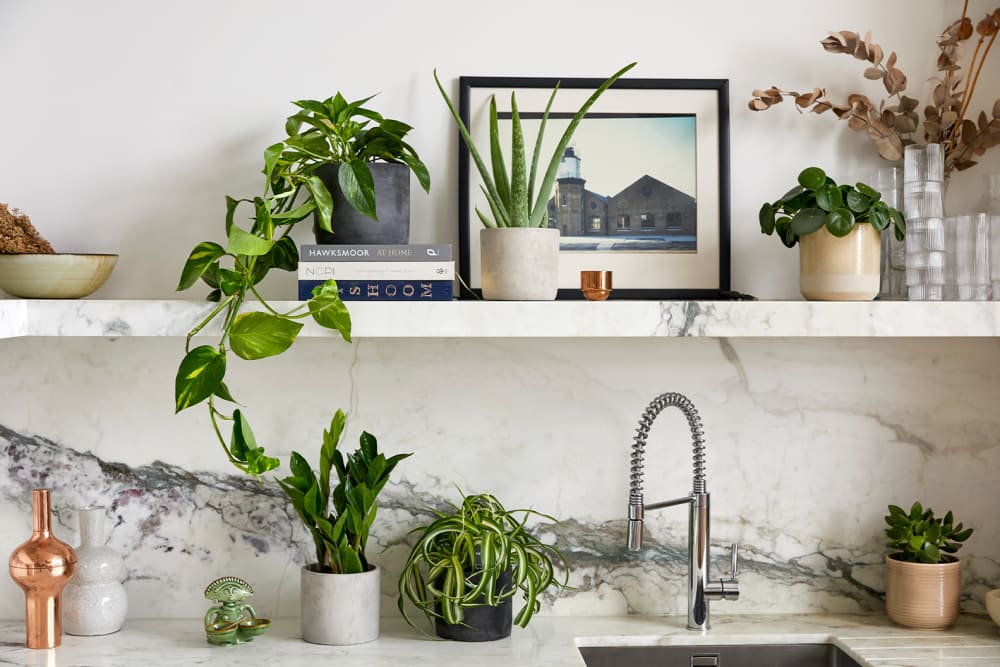
7. Practice daily self-care
In these busy times we’re all looking for ways to soothe our frazzled brains. Cooking for yourself is an enormously rewarding way to practice self-care. It’s not just the food that you’re eating, it’s taking the time out of your day to focus on turning ingredients into something delicious.
Caring for plants is another great way to practise daily self-care. Their needs are simple, and they’ll thrive if given the right amount of water, food, sunlight, and care (much like us humans). Cleaning, snipping, or watering plants gives your mind a chance to focus, unwind, and connect with nature.
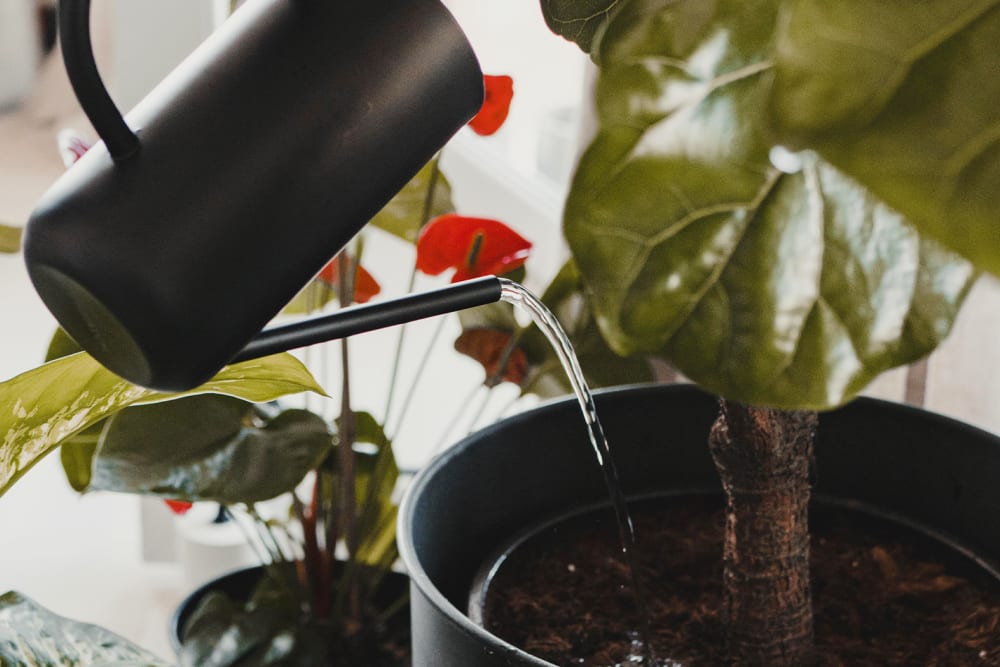
Yet to try healthy eating made easy? Use the exclusive code PATCH at mindfulchef.com for 25% off your first 4 recipe boxes. Mindful Chef healthy recipe boxes provide you with the tools to cook delicious nutritious meals, in under 30 minutes. Each box contains recipe instructions, pre-portioned ingredients and fresh produce sourced from award-winning British farms.
Rewild your inbox
Plant tips. Special offers. No spam.
You might like

How plants help us process trauma
Sue Stuart-Smith explains how nature heals

How to create harmony between lighting and plants
Let there be light! These bulbs (and bulbs) will work together.

How to keep pests away from outdoor plants
Easy ways to keep those critters away